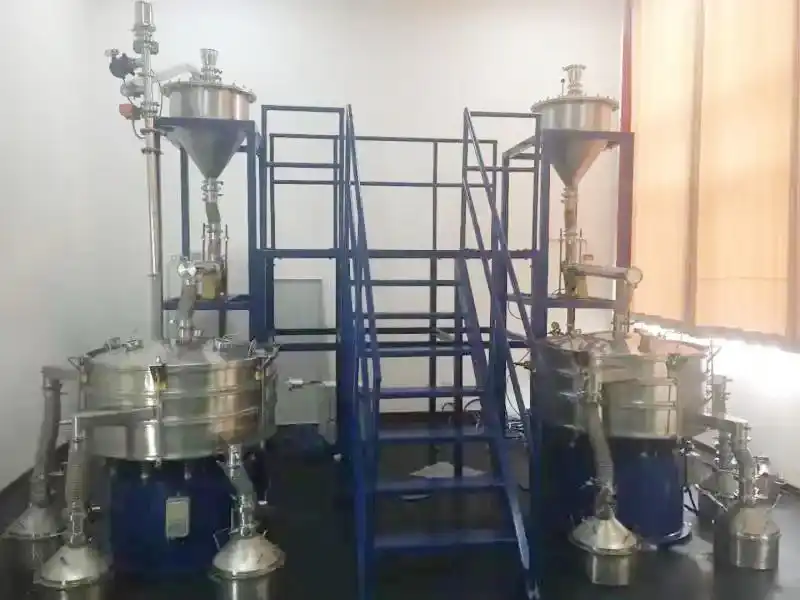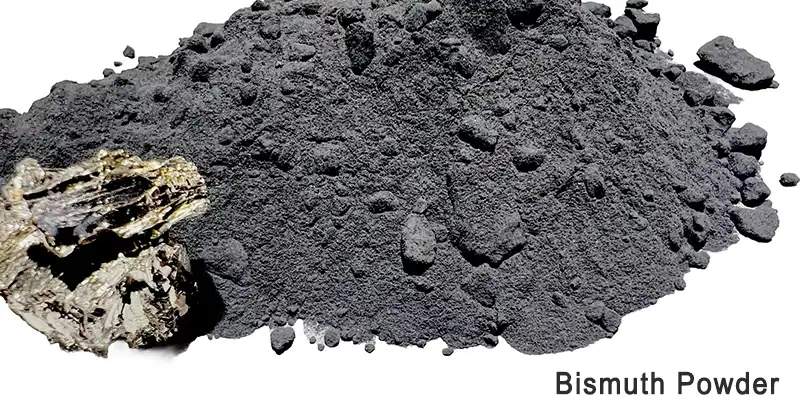Screening titanium powder is crucial due to its significant role in the aerospace and medical fields, where strict particle accuracy is required. Ensuring a consistent particle size distribution through sieving helps manufacturers achieve higher quality products.
Why choose ultrasonic vibrating sieve?
The ultrasonic vibrating screen, which combines an vibrasonic ultrasonic system with a traditional sieving machine, addresses several problems. By applying ultrasonic frequency directly to the screen mesh, it breaks down the surface tension and enhances the screening process. It can improve the performance of the sifter machine. This technology allows for the screening of titanium powder as fine as 45μm (325 mesh) or even finer powders down to 10μm. It eliminates mesh blindness and increases material flow rate.
The advanced screening capabilities of the ultrasonic vibrating sifter meet the stringent requirements of titanium powder manufacturers, enabling the production of finer titanium powder (from 300μm/50 mesh down to 45μm/325 mesh). This ensures the fulfillment of customers’ demands for fine materials, high production output, and consistent product quality.

Advantages:
- Superior ultra-fine powder sieving capability with uniform particle size distribution and no screen mesh clogging.
- Efficient ultrasonic screen cleaning method, reducing downtime and inert gas clean available.
- Eliminates potential agglomerates and loosens lumps, increasing the screening rate.
- Fully sealed structure to prevent contamination from airborne pollutants.
- Self-developed ultrasonic system offering high flexibility and strong configurability.
Titanium Powder and Its Applications
Titanium is a lightweight, durable, and versatile metal known for its excellent weight-to-strength ratio and corrosion resistance, especially when alloyed with other metals. Titanium alloy powder is a fine particulate material made by mixing titanium with metals such as aluminum, vanadium, molybdenum, and zirconium. This alloy powder boasts exceptional strength, low density, ductility, corrosion resistance, and biocompatibility. It is suitable for a wide range of industrial applications, including aerospace components, 3D printing, automotive manufacturing, and medical devices, etc.


